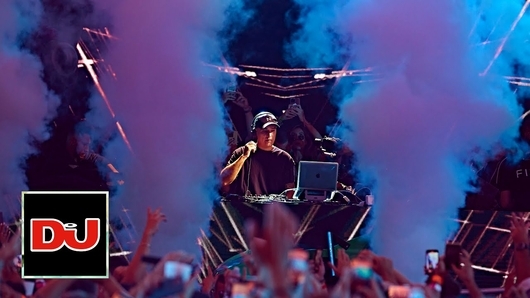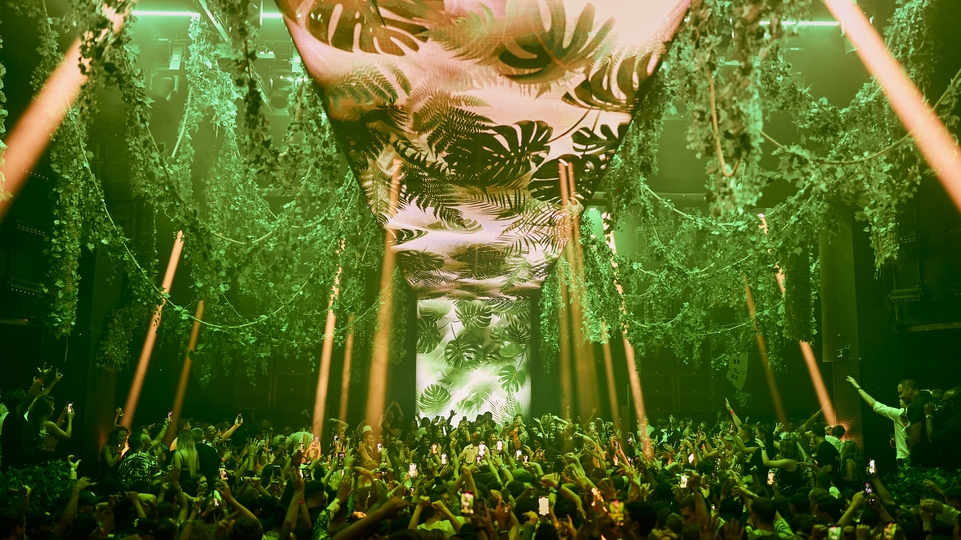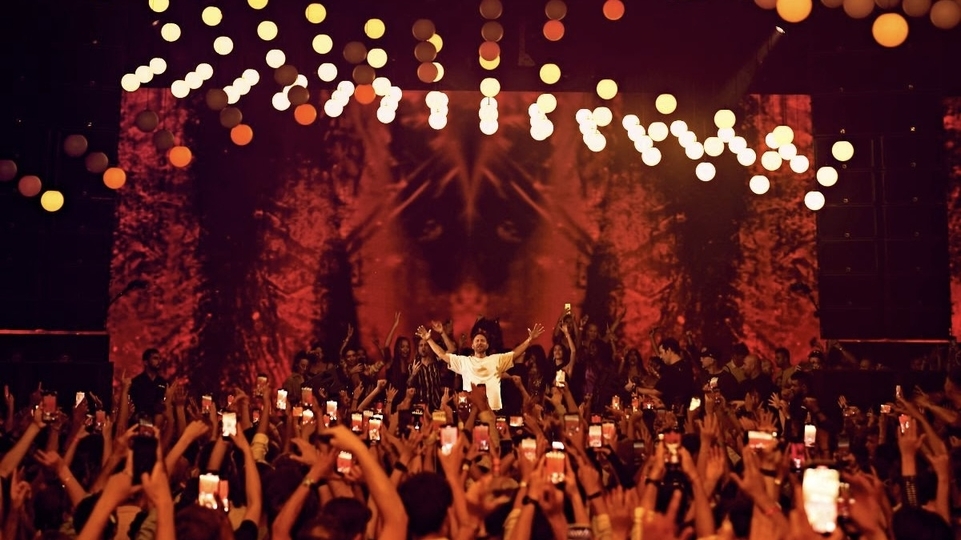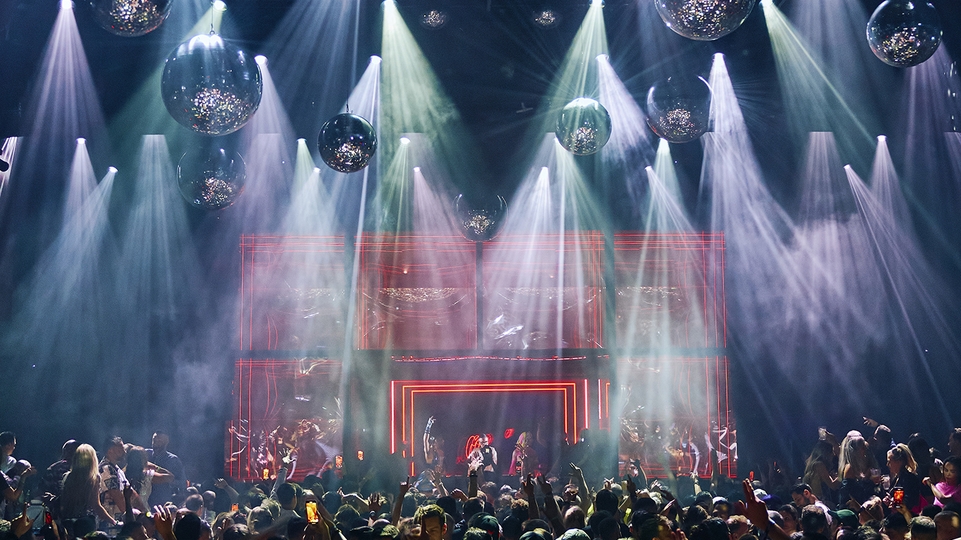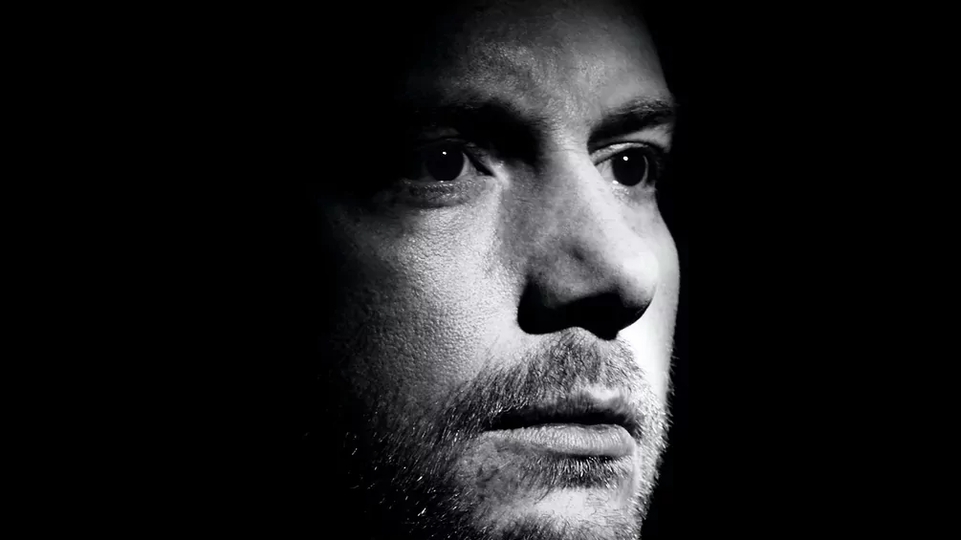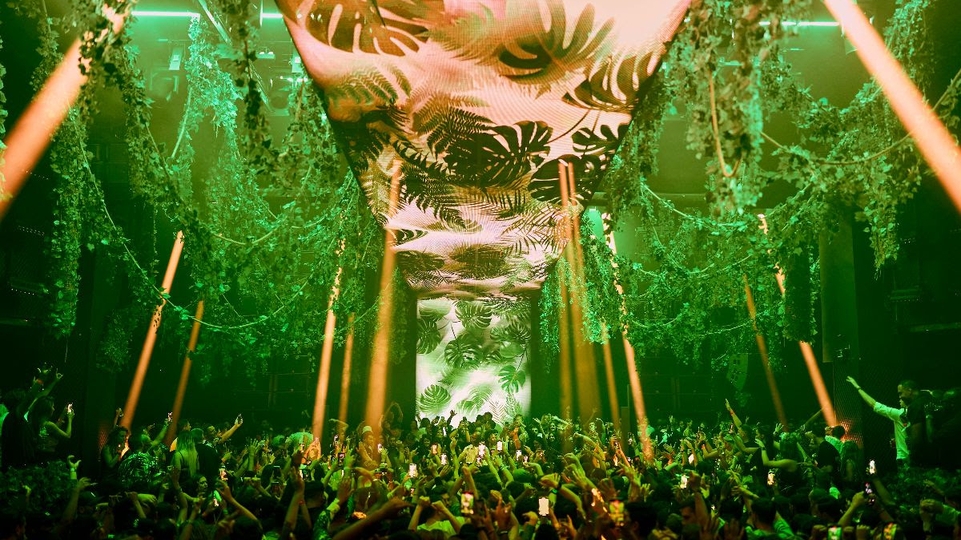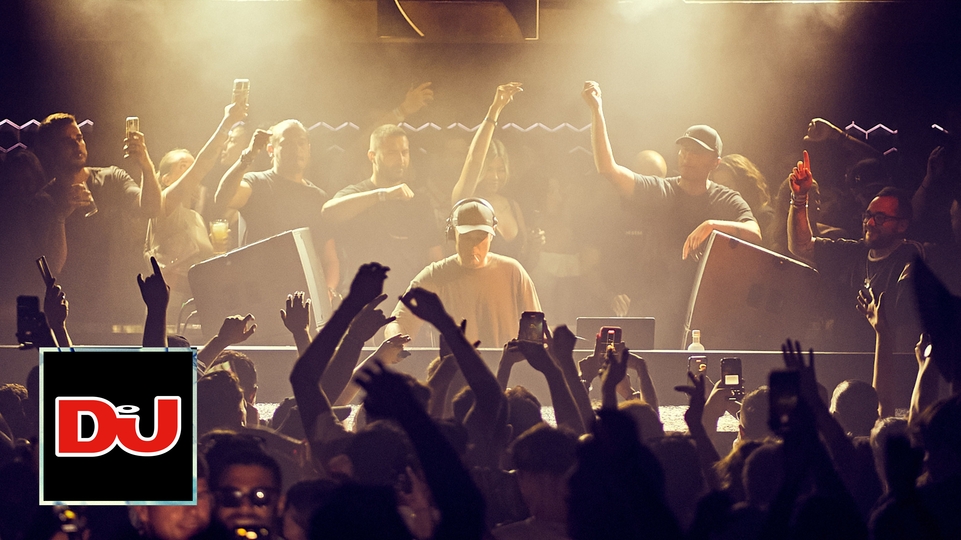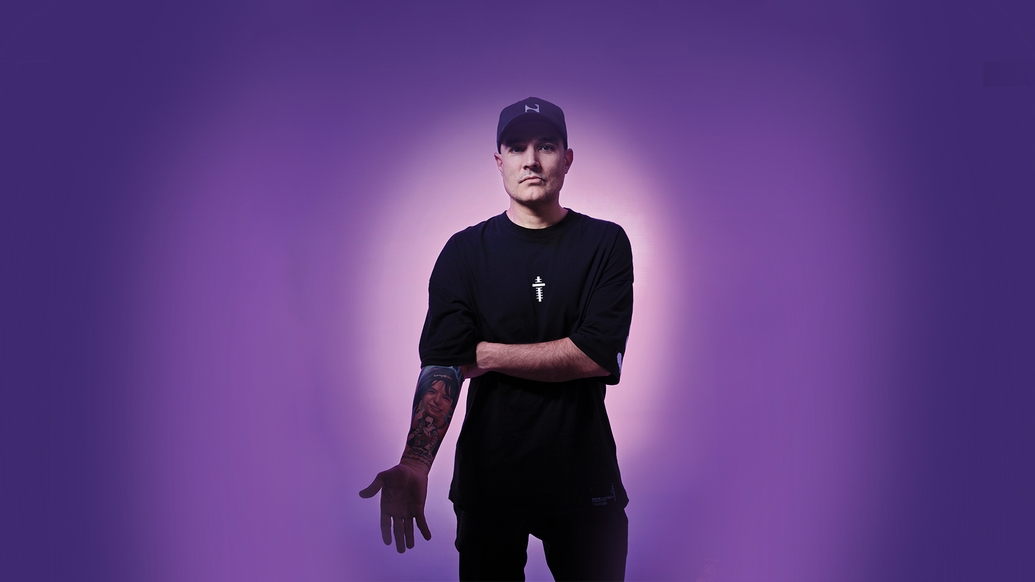
Paco Osuna: be here now
Spanish DJ/producer Paco Osuna has taken a while to rise to the absolute zenith, but now that he’s there — with his weekly residency at Hï Ibiza, the No.1 club in the world — he’s having the time of his life. DJ Mag Ibiza catches up with Paco to talk about his history, the state of techno, why he loves the Club Room at Hï Ibiza and more
DJ Mag Ibiza hooks up with Spanish superstar DJ Paco Osuna in an Ibiza photography studio at the tail-end of a big weekend. He played a festival in Romania on the Friday night, the opening of Hï Ibiza on Saturday, and then Madrid on Sunday. He’s only had about seven hours sleep in three nights, but seems remarkably fresh even so. “I’m having my second life with Hï Ibiza right now,” he begins.
It’s taken Paco a good long while to reach a position where he’s at the top of his game — and it doesn’t get much bigger than having a residency at the No.1 club in the world, where he gets to programme his own room with complete creative freedom. “The Club Room at Hï Ibiza has this special feeling, the same feeling as I had years ago, where people are really passionate about the music,” Paco says. “I’m 49 years old this year, and I was considering slowing down. Not retiring, but being more calm and chilled. But last summer I got so much energy from this club, and from the room, that it completely changed my plans, you know? Now I just wanna keep flying the flag of NOW HERE around the world.”
Paco’s uncle was the manager of Studio 54 nightclub in Barcelona, and would put on underage nights for 15-16-year-olds from 6-10PM some nights. For his 14th birthday he let Paco have a party there. “At that moment I saw a DJ, and I got inspired,” he recalls. “I saw how the guy was very small and tiny, but was having control of everybody, and I thought ‘I want to be like him’.”
He became obsessive about wanting to be a DJ from that moment onwards. “All my family is military and police, so for them it was a big drama that the son didn’t continue the family thing,” he says. “But I always say, if you can — as much as possible — you have to always try to follow your dreams.” At times it wasn’t easy, he says. He chipped away at his family, and in the end they approved of his chosen career.
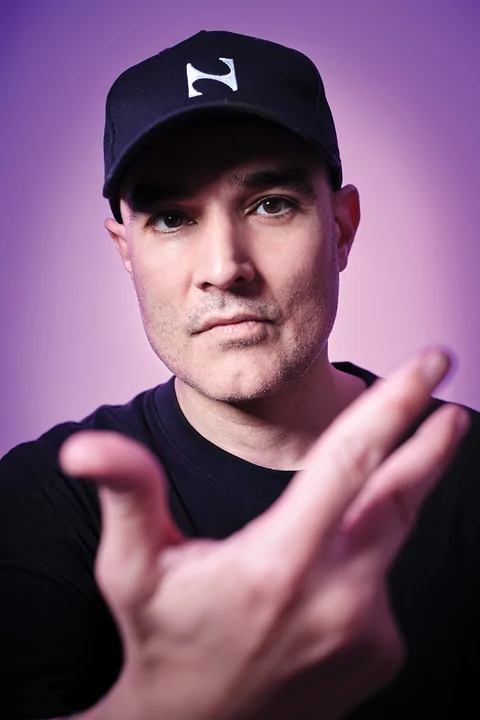
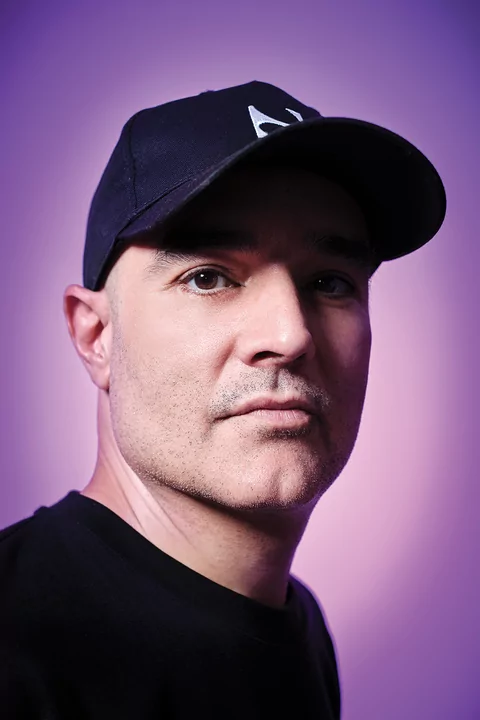
Paco’s first professional gig — where he got paid — was in Valencia in 1994, after he finished his military service, which was compulsory at the time. It went so well that they offered him a residency, and by 1999 he was a resident at superclub Amnesia in Ibiza. “After that I started to work with Cocoon. So I was opening for Sven [Väth], I was opening for Tiësto, for every kind of music. My dream was to be part of Cocoon, and Sven told me that if I wanted to be part of Cocoon I had to take a direction with my career — I could not be playing one sound one day and a different sound the next. Then you don’t have personality, if every day you change your music. So then I started being part of the Cocoon agency.”
He’d started to play techno before Cocoon came into his life, he says. At first he was into acid house, then makina — a kind of hard and bouncy techno sound that originated in Spain — and then more tech-house, such as material on UK label Eukahouse. “But seeing Cocoon parties was another step for me. Everybody was a family — at the time, all of us, Richie [Hawtin], Marco [Carola], Carl [Cox], all were playing for Cocoon. It was like a family. Every Monday before the night we would all have dinner together, and I really wanted to be a part of that.”
Sven Väth was very nice to him, giving Paco duplicate copies of his vinyl promos and acting like a bit of a mentor. He did three or four seasons with Cocoon, also creating and mixing a run of ‘Amnesia Underground’ compilations CDs — the first DJ to make a techno comp for a club in Ibiza. Then Paco started playing with Richie Hawtin at ENTER. “Richie has always been a huge inspiration — music-wise, and the way he mixes tracks,” he says. “With the technology — everything.” He recalls the first time Hawtin played at Amnesia with digital mixing system Final Scratch, a forerunner of Traktor, in the early ’00s, and how Pascal FEOS and he watched open-mouthed as Richie seamlessly mixed from the laptop to time-coded vinyl platters.
“Richie always was a person who inspired me a lot to keep looking at the way I want to play music, and also mixing,” he says. “It was a dream to play there at ENTER. It was one of the happiest experiences of my life as a DJ. It was a time where we were really a family — we spent all the days together, having dinner together, and the first three or four years of ENTER. was incredible.”
When Hawtin helped create the PLAYdifferently next-level MODEL 1 mixer, Paco immediately became an ambassador for the company alongside the likes of Loco Dice and Nicole Moudaber. He still uses PLAYdifferently hardware to DJ with today. As with the switch from vinyl to digital, embracing new technology is important to him. “I always give this example to people — you prefer to go with a horse, or in a car? You prefer to watch TV on a plasma LED screen, or in black and white? It’s part of evolution, and in the end you can’t fight against it.”
The switch to digital adversely affected Paco because he owned a record shop at the time. As vinyl sales fell through the floor, he regrettably had to close his shop, but hasn’t looked back since. He much prefers the increased options that digital DJing gives him, and says that he has never had a problem with his laptop while playing a gig.
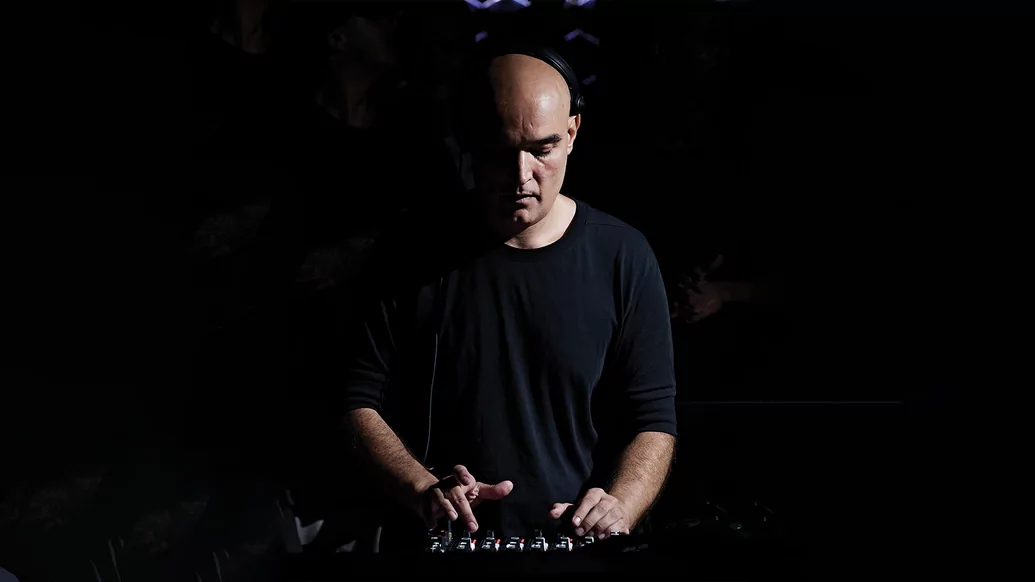
At the turn of the last decade, Paco was torn between two of his great friends in techno. He was a resident at ENTER. at Space in Ibiza, but his Italian friend Marco Carola was starting his own Music On nights — what should he do? “Marco is my best friend. He’s been my best friend for 24 years, since 1999 in Amnesia,” he explains. “We were all together working for the Cocoon and Minus agencies. Then Marco decided to leave to create his own brand, and I was in the middle — it was like, ‘Choose between your father or your mother’.”
Paco wanted to play for both, but stayed with Hawtin and ENTER. out of loyalty because that’s where he was already. After ENTER. finished, he moved over to Music On with Carola. “Marco and I had an agreement — he was taking care of the Terrace, and I was taking care of the main room,” he says. This curation role was a step up from simply turning up to DJ, “and so it was more special for me, I could help the brand with ideas”. It was also a nice circular moment, as he was back where he started at Amnesia.
Having his own label has also allowed Paco more creative control. “Mindshake was always an escape from the big companies,” he says, before telling a story about how, just after he started producing music himself, legendary NYC DJ Danny Tenaglia wanted to remix his second record. “I was a nobody, just a resident in Amnesia, with the immense opportunity to be remixed by Danny Tenaglia, and my company said no,” he remembers. “And after the success of this record, the company was like, ‘You have to do something similar’. And I thought, ‘If I’m doing what you tell me to do, where is my creative here?’” He immediately decided to start his own label, Mindshake, in 2005, which is now fast approaching its 100th release.
He starts talking about how the Club Room at Hï Ibiza is so perfect for him, and how great the 2022 season was. “I got the feeling that the people really care about the music,” he says. “The manager came to me and said, ‘Hey Paco, do you want dancers?’ No, I don’t want dancers. They take up space, and my room is already packed. ‘Do I want a VIP table?’ No, this is the club for dancing. We focus on the music. Music is my priority — it’s my life. I even feel sad when I start to DJ and everybody gets their phones out.”
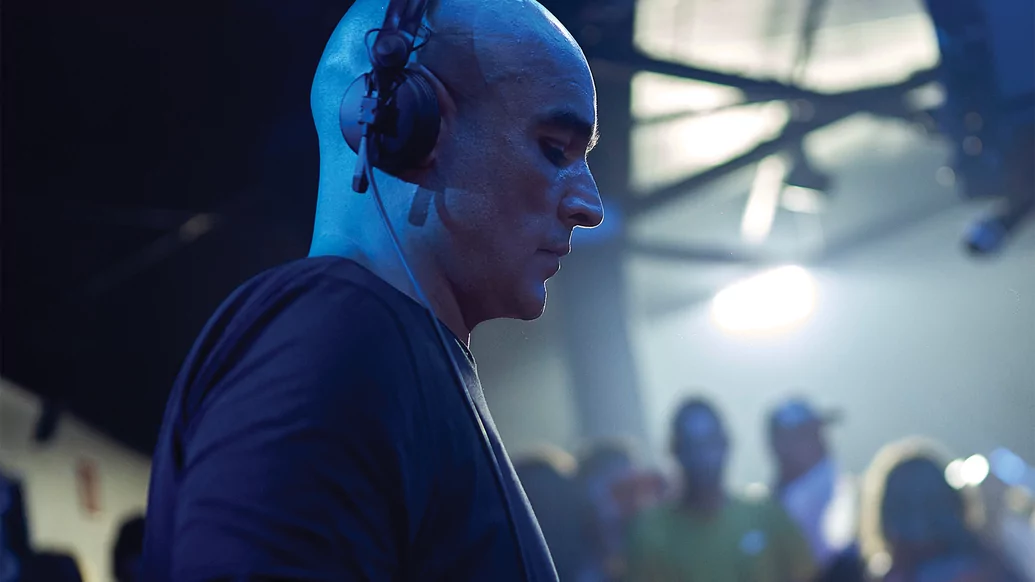
He talks about this different era of social media, and how he loves it that lots of people in the Club Room stay there all night, right until the end. “I get the feeling like 20 years ago,” he says, harking back to the family feel of nights like Cocoon in his past. “Now, Tuesday at Hï Ibiza is the same. Obviously I know the club and the room, but many people in the room are the same every Tuesday. On Saturday at the opening they were also in front of me, bringing lollipops...” He smiles. “It’s like a family thing. For me this is very, very special, it gives me inspiration to keep going and keep fighting.”
Paco already has such a following that he doesn’t need to book big names for NOW HERE in the Club Room at Hï Ibiza. “How do I decide who to book? I have to see them play. Not listen to demos — watch. Every guy can play in the studio, at home, but I want to see for real. Then, when I see them and I think that the sound that they play can fit in my room, I book them. I don’t book names, I don’t care about the names. The good thing about my room is that there is no need to book big names to fill it. Last year the reaction for everyone — audience, the club and the DJs — was incredible, many DJs told me how much they liked playing here because this was the real underground.” NOW HERE reaffirmed his belief in the scene, he says.
What was noticeable about Paco’s set at the Hï Ibiza opening was how many tracks he played had vocals in them — whether originally part of the tune, or with Paco adding in acapellas. So how important are vocals in techno, Paco? “It’s important, whatever style of music you play — techno, tech-house, minimal, my three favourite styles — to keep the groove,” Paco replies. “This is basic. The bassline is the basic element — more than vocals or anything. Techno right now is too aggressive, too fast — no funk, nothing. When I started to play techno, it was groovy — it can be harder even, but it was groovy and sexy. What’s important is to keep the groove. Keep the same level of intensity all the time.”
The Club Room at the opening was indeed buzzing all night. Does Paco think the 2023 season is going to be as good as last year? “I don’t want to create expectations — if you don’t have expectations, you don’t get disappointed,” he replies, sagely. “I just hope it’s similar to last year. If it’s similar, that is very good. Now I’m in the time of my life where I don’t think about numbers or money — I want to play where I feel free and happy to play the music that I like. When I feel that my music is understood.” The two clubs where he feels he can most do this right now are Hï Ibiza and Space Miami, he says. “The only two places in the world where I could stay playing three days non-stop!
“The Club Room at Hï Ibiza has this special feeling, the same feeling as I had years ago, where people are really passionate about the music,” he continues. “I have a son who is nine, and I don’t spend so much time with him. This month, I saw my son for maybe nine days during the week. So I was thinking maybe it’s time to slow down... but then along came Hï Ibiza. I’m having my second life with Hï Ibiza right now, and I’m loving it.”
